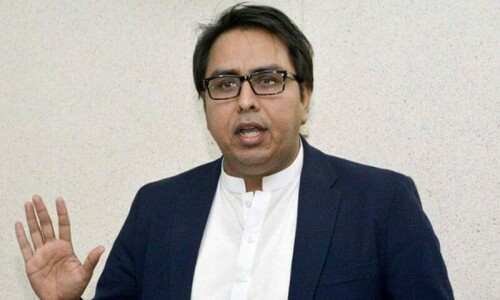
OSLO: The European Union (EU) won the Nobel Peace Prize on Friday for its efforts to promote peace and democracy in Europe, an award given despite the bloc struggling with its biggest crisis since it was created in the 1950s.
The Norwegian prize committee said the EU was being honoured for six decades of contributions ''to the advancement of peace and reconciliation, democracy and human rights in Europe.''
''The stabilising part played by the European Union has helped to transform a once-torn Europe from a continent of war to a continent of peace,'' Nobel committee chairman Thorbjoern Jagland said.
The EU grew out of the tremendous devastation of World War II, fueled by the conviction that ever-closer economic ties would make sure that century-old enemies never turned on each other again. It is now made up of 500 million people in 27 nations, with other nations lined up, waiting to join.
But the EU is now facing its greatest challenge yet with a debt crisis that has stirred deep tensions between north and south, caused unemployment to soar across the bloc and is threatening the euro, the common currency used by 17 of its members.
Social media exploded with strong reactions Friday, both for and against, awarding the prize worth eight million Swedish kronor ($1.2 million).
''The EU is a unique project that replaced war with peace, hate with solidarity. Overwhelming emotion for awarding of #Nobel Prize to EU,'' Martin Schulz, president of the European Parliament, wrote in a tweet.
''Nobel Prize for the EU. At a time Brussels and all of Europe is collapsing in misery. What next? An Oscar for Van Rompuy?'' said Dutch euro-skeptic lawmaker Geert Wilders, referring to Herman Van Rompuy, president of the European Council.
The idea of a united Europe began to take on a more defined shape when, on May 9, 1950, French Foreign Minister Robert Schuman proposed that France and the Federal Republic of Germany pool their coal and steel resources in a new organization that other European countries could join.
''Today war between Germany and France is unthinkable. This shows how, through well-aimed efforts and by building up mutual confidence, historical enemies can become close partners,'' the committee said.
On the contrary, those two countries these days tend to be the EU's dominant players, with the French president and the German chancellor often getting together to, in effect, hash out EU policy. The citation also noted the democratic conditions the EU has demanded of all those nations waiting to join, referred to Greece and Spain when they joined the 1980 after dictatorships, and to the countries in Eastern Europe who sought EU membership after the 1989 fall of the Berlin Wall.
''The EU is currently undergoing grave economic difficulties and considerable social unrest,'' Jagland said. ''The Norwegian Nobel Committee wishes to focus on what it sees as the EU's most important result: the successful struggle for peace and reconciliation and for democracy and human rights.
It was not yet clear who would accept the prize for the EU. The EU has been seen as possible candidate for the Nobel for many years, and the members of the committee had previously praised the community's significance as a promoter of peace and democracy in Europe.
But scepticism against the EU runs high in oil-rich Norway, which is not a member and where popular opinion is firmly against membership. Norwegian voters rejected joining the EU twice, in 1972 and 1994.
Over time, the EU has grown from six countries to 27, absorbing countries in Eastern Europe as they emerged from decades under communist rule.
Britain has always been a half-hearted member since joining in the 1970s, and is not part of the 17-nation eurozone which shares a common currency.
While there have never been wars inside EU territory, the confederation has not been able to prevent European wars outside its borders. When the deadly Balkans wars erupted in the 1990s, the EU was unable by itself to stop them. Peace was eventually restored in Bosnia and Kosovo after over 100,000 lives were lost and when United States provided assistance.














































Dear visitor, the comments section is undergoing an overhaul and will return soon.